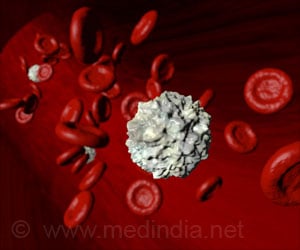In the United States, tobacco use is the single largest preventable cause of cancer, and smoking cessation treatment has long been regarded as a key cancer prevention strategy.

A survey of National Cancer Institute (NCI)-designated cancer centers indicated that only 38 percent of the responding centers record smoking as a vital sign, and less than 50 percent have dedicated tobacco cessation personnel. These findings are unfortunate, as evidence shows that continued tobacco use during and after cancer treatment leads to more adverse side effects, poorer treatment outcomes and higher overall mortality from all causes.
"We have made great strides in treating cancer, and people are living for decades after a cancer diagnosis," said Margaret Foti, Ph.D., M.D. (h.c.), chief executive officer of the AACR. "If, however, we do not address patient's tobacco use, then we leave them at risk for failing cancer treatment, developing new malignancies, and premature death from non-cancer causes such as cardiovascular disease. With this statement, we call on all oncology professionals to take responsibility for identifying tobacco users at every visit and ensuring that these patients get the treatment and support they need."
In addition to compromising their treatment and overall health, continued smoking by patients with cancer can complicate the interpretation of clinical trial outcomes. "Tobacco, like other drugs, has adverse side effects and can interfere with the effectiveness of cancer treatments," said Roy Herbst, M.D. Ph.D., chair of the AACR Subcommittee on Tobacco and Cancer and chief of medical oncology at Yale Comprehensive Cancer Center in New Haven, Conn. "We have to get to a point in clinical trials where we factor a patient's tobacco use into how we evaluate patient outcomes, just like we do with other drugs or comorbidities. Right now, the field is not doing that with any regularity."
A recent evaluation of 155 NCI Cooperative Group trials showed that as few as 29 percent of registered trials assessed any form of tobacco use in patients at enrollment, and less than 5 percent of registered trials assessed tobacco use during follow-up. In addition, a newly published large survey of oncologists demonstrates that while 90 percent believe that tobacco use affects cancer outcome and that tobacco cessation should be a standard part of cancer care, only 40 percent regularly provide assistance to stop using tobacco.
In the statement issued today, the AACR calls for universal tobacco use assessment and documentation at every patient visit in all clinical cancer settings. "Whether they are being treated in a community oncology setting or as part of a cancer clinical trial, we must help patients end their tobacco addiction, but we can't do that unless the patient has been identified as a tobacco user," said Benjamin Toll, Ph.D., program director of the Smoking Cessation Service at Smilow Cancer Hospital at Yale-New Haven Hospital and chair of the writing committee charged with developing the AACR policy statement.
Source-Newswise
 MEDINDIA
MEDINDIA




 Email
Email










